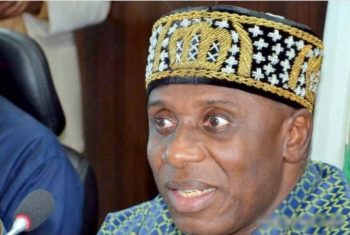
Transport is an essential part of human survival. No modern nation can develop and grow without a sustainable transportation system. But transportation systems are not built arbitrarily; they are designed and established with utmost adherence to a statement of purpose and action often called a policy. A policy is a general statement or principle that guides the plans and actions of a given entity. A policy ensures that nothing is done capriciously within the entity. For many years, the transportation system in the country has thrived without a ratified guiding policy document. Its absence is partly responsible for the disparity in the understanding of transportation in the country. It is somewhat responsible for our inability to encourage and develop our inland waterways for local travel and freight of goods and services. It is perhaps responsible for the absence of a rail line that links the airports in the country, among many other shortcomings of the prevailing situation. Running a national transportation system without a well-conceived policy is like driving without a map in an uncertain road. Stakeholders in the transportation industry understand this challenge and have often implored the government to formulate a functional policy for the industry.
Fortunately, the importance of this policy is not lost on the Ministry of Transportation. According to the ministry, the purpose of the National Transport Policy is to establish a framework that can guide the planning and development of transport activities in a systematic and sustainable manner for the social and economic development of Nigeria. It is on record that the country has been making efforts at instituting an effective transport policy since 1986, more than 30years ago. The first draft national transport policy was submitted in 1990; however, no administration has successfully ratified the draft policy. There have been diverse review committees but all they ever produced were draft policies. The closest we got to have a policy was the draft policy submitted in 2010 but even that remained a draft. Conversely, positive sensations permeated the industry when at the 15th Meeting of the National Council on Transportation held in Sokoto on 30th August, 2017, the Council constituted a committee to finalize the review of the draft National Transport Policy (NTP). The terms were to review the existing draft policy with a view to producing a final document that will be re-presented to the Federal Executive Council (FEC) and National Economic Council (NEC) for final ratification.
Commendably, the committee submitted its report to the Minister of Transportation in December 2017 paving the way for an expedited action. The onus now lies with the Minister to ensure that the policy is presented to the Federal Executive Council and ratified immediately. The expectations of stakeholders are a policy that will stimulate investment, create jobs and improve our transportation infrastructure. It is heart-warming that the ministry seems to understand the importance of this policy. The Minister should consider this as a challenge to ensure that the draft becomes a true policy document in this dispensation. Every segment under the transportation sector in Nigeria needs this policy desperately because of the attendant benefits. Commendation will flow in the direction of the Minister of Transportation if this policy could be achieved in the first term of President Muhammadu Buhari.
More importantly the final document must perfectly address the many challenges bedevilling the transportation sector in Nigeria. In addressing the challenges of the country, the policy must also be reflective of current global realities. The world is fast moving away from the colonial rail systems we still celebrate in Nigeria. Nations are building infrastructure not only for the present generation; but also in anticipation of the future generations. It is just expected that we will move with the rest of the world in this direction. At the presentation of the report of the review committee the Minister, Mr. Rotimi Amaechi shared his experience at a foreign port. In his words: “I went to the new airport in Singapore and I didn’t find one person at the airport. As you walk in, technology takes place.” This is the current state of transportation and logistics in the world; it is technology driven, fast, efficient and reliable. This should be the direction of any policy document from the government. But ultimately, let the National Transport Policy become a reality in the life of this administration.
Related Posts:
Copyright Ships & Ports Ltd. Permission to use quotations from this article is granted subject to appropriate credit given to www.shipsandports.com.ng as the source.
